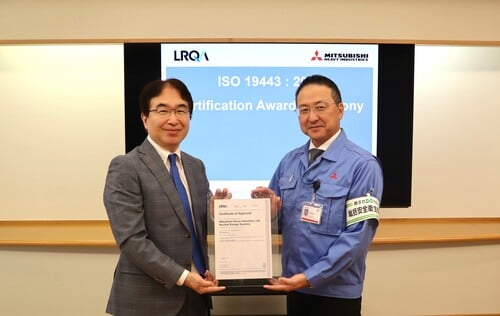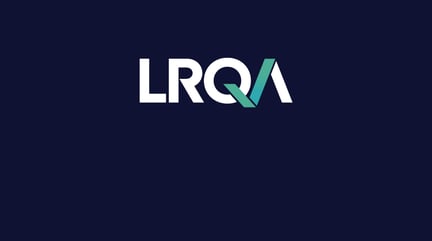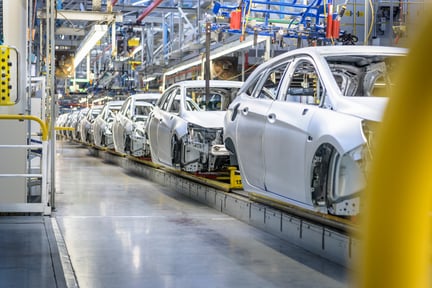MHI is one of Japan’s leading comprehensive heavy machinery manufacturers. The company operates across a wide range of sectors, including energy, plant and infrastructure, aerospace and defense, logistics, thermal systems, and drive systems. Since its founding in 1884, MHI has been committed to addressing societal challenges and has contributed to the development of industrial and infrastructure sectors both domestically and internationally through its advanced technologies and trusted capabilities.
In the nuclear energy sector, MHI is dedicated to enhancing safety and reliability through the design, manufacturing, and maintenance of nuclear facilities. With operations spanning the globe, the company provides high-quality products and services to the global supply chain.

At the certification award ceremony held on Thursday, July 31, 2025
Mr. Kaname Shibato, Deputy Head of Nuclear Energy Systems, Head of Kobe Shipyard & Machinery Works at Mitsubishi Heavy Industries, Ltd. (MHI), shared the following insights regarding the company’s ISO 19443 certification:
1. What was the purpose of obtaining ISO 19443 certification?
Based on its extensive experience in the nuclear energy sector, MHI believed it could effectively implement quality management activities that meet the requirements of ISO 19443. Therefore, in addition to its existing ISO 9001 certification, the company decided to pursue ISO 19443 certification.
2. What challenges did MHI face during the certification process, and what were the key considerations?
As a nuclear manufacturer, MHI has long maintained a quality management system to deliver high-quality products that meet client requirements. The initial step involved evaluating whether the existing system aligned with ISO 19443 requirements. The system was found to be largely compliant. To further enhance alignment, updates were made to the quality manual and other documentation to better reflect the standard’s requirements.
3. What benefits has MHI experienced following the implementation of ISO 19443?
While MHI has long engaged in initiatives to cultivate a safety culture in nuclear operations, one of the key advantages of obtaining ISO 19443 certification lies in the opportunity to be evaluated from an external perspective. This external validation is expected to support further improvement of ongoing activities and enhance the level of trust from clients.
4.Why did MHI choose LRQA as the certification body, and what were their impressions of the audit process?
In the nuclear energy business, MHI has already obtained ISO 9001 and ISO 14001 certifications from LRQA. Through many years of audits, LRQA has provided valuable recommendations that have contributed to the continuous improvement of our quality management system. Based on this trusted relationship and deep understanding of our operations, we chose LRQA again for ISO 19443 certification.
5. What is MHI’s outlook regarding the future impact of ISO 19443 on its operations?
MHI has built a quality management system that complies with various requirements, including ISO 9001, and has consistently delivered high-quality products and services as a nuclear manufacturer, contributing to improved safety and stable operation of nuclear facilities. With the acquisition of ISO 19443 certification, the company aims to further enhance the reliability of its quality management system and make an even greater contribution to the safe and stable operation of nuclear facilities.
MHI becomes the first Japanese firm to secure ISO 19443:2018 certification in the nuclear energy field — read more about our commitment to safety and quality.
Read the full release







